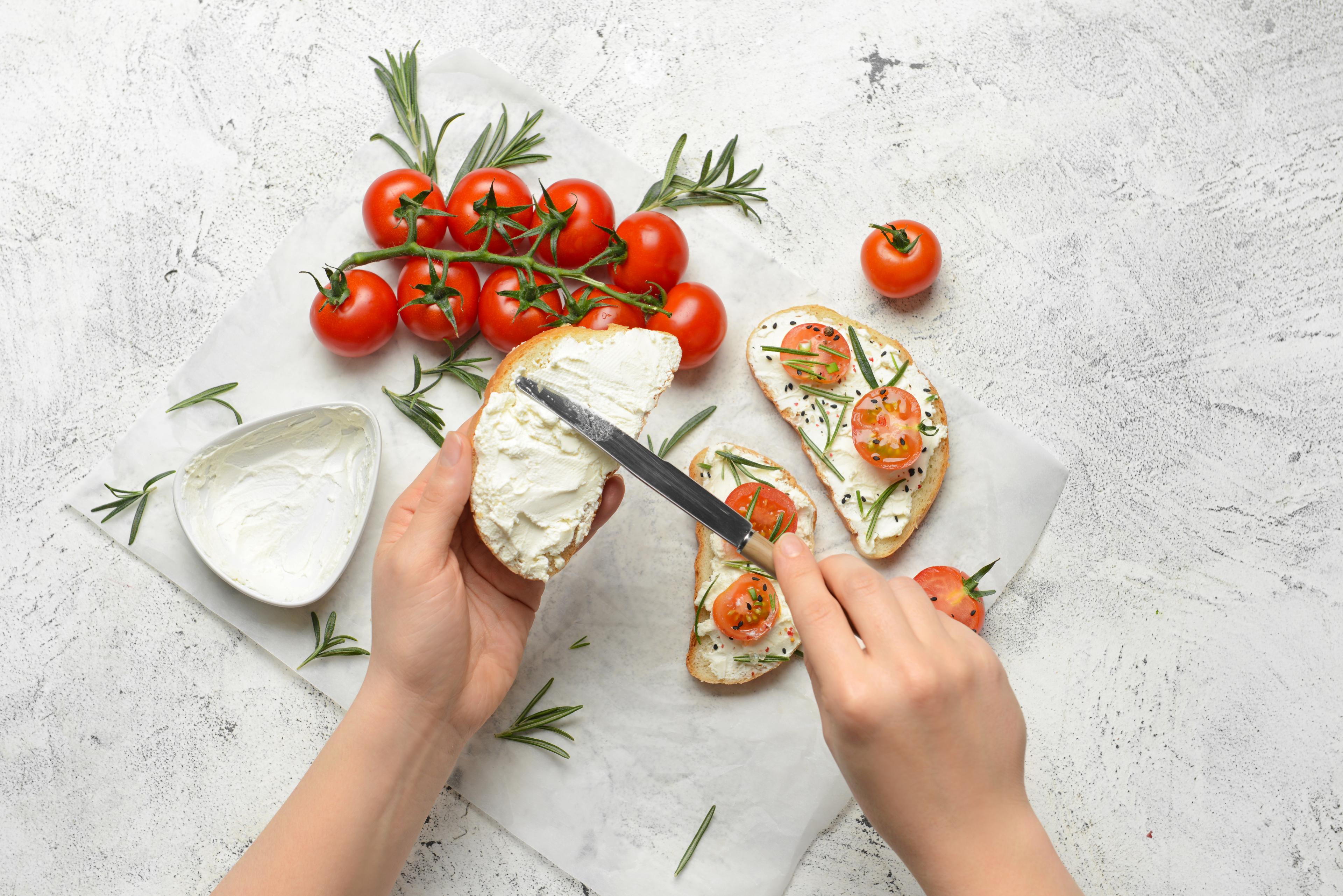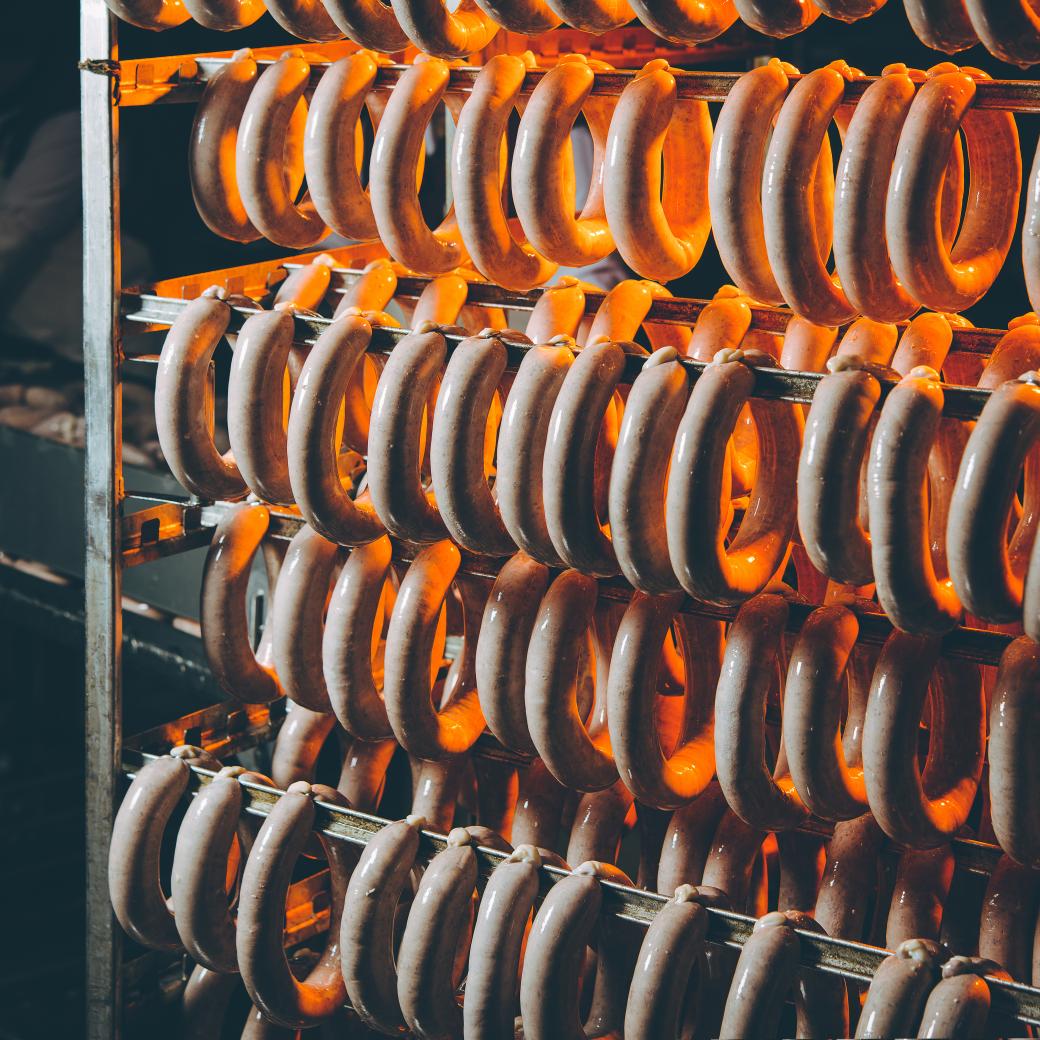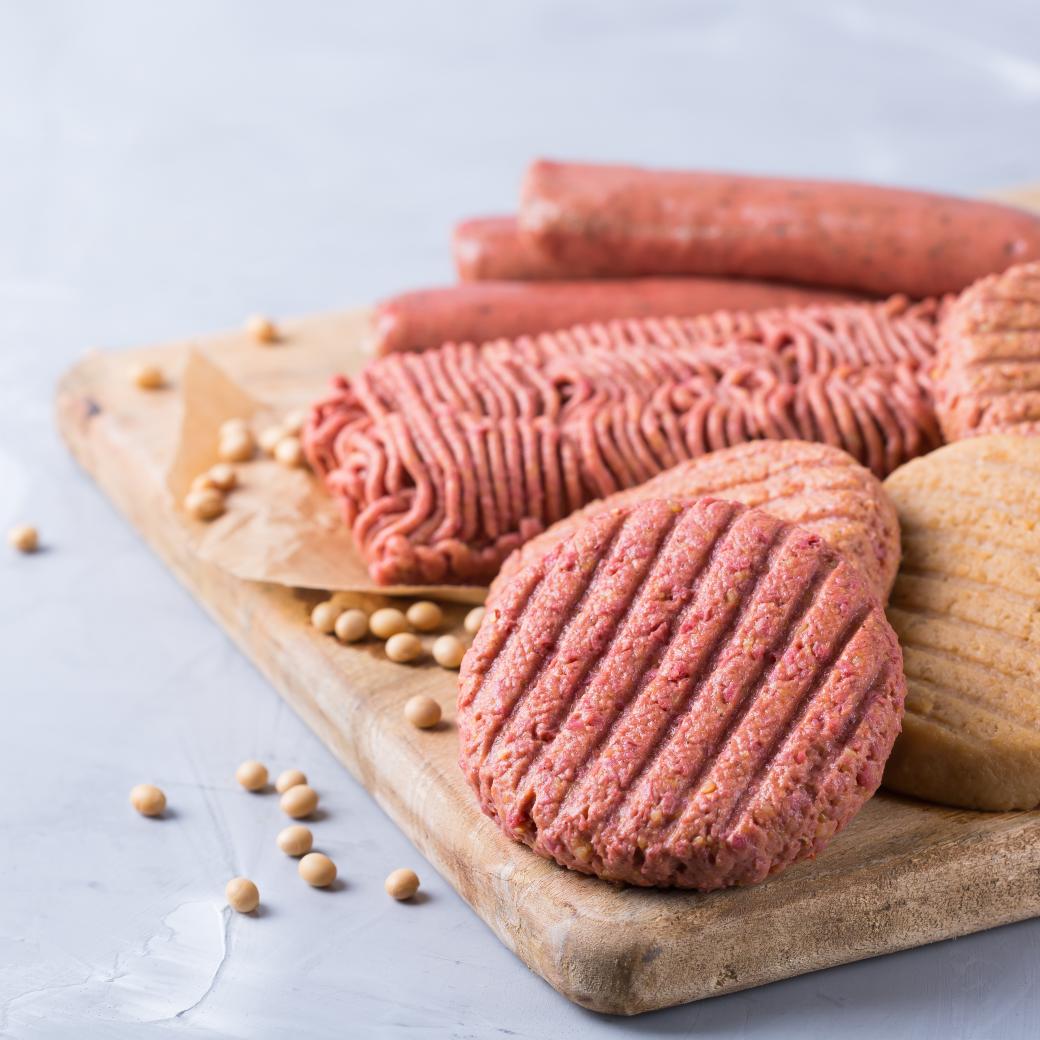Vegan Spreads
With support of:



Investigating the potential of fermentation with exopolysaccharide-producing starter cultures in the production of vegan spreads.
Why this project?
Vegan food products have been on a huge rise in recent years. Ethical views, health considerations, and/or climate protection often influence consumer choices. Meat is being replaced more often, increasing the need for high-quality and protein-rich plant-based alternatives. There is also a demand for better alternatives in the area of spreads. The vegan spreads currently on the market are often high in fat and/or (very) low in protein. They also often contain hydrocolloids. On top of that, vegan cream cheese alternatives often have an unbalanced flavour and texture profile, especially if the products are enriched with protein.
This project aims to address these challenges by generating knowledge on how to develop high-quality, vegan, protein-rich spreads using fermentation with exopolysaccharide-producing starter cultures. The in-situ production of exopolysaccharide (EPS) (similar functional properties to hydrocolloids) allows stabilisation of the spread matrix even at higher protein contents. There is also a positive effect on the spreads’ texture, mouthfeel, and ease of spreading. The starter cultures used contribute to product safety and flavour. Both a vegan cream cheese and a classic vegetable spread will be developed.
Methodology and expected results
Through this CORNET-TETRA project, we aim to generate knowledge on fermentation using exopolysaccharide-producing starter cultures to produce vegan spreads. The aim is to provide SMEs with the knowledge necessary to make high-quality fermented vegan spreads with an optimised nutritional profile. This means tasty, plant-based, healthy, and clearly labelled.
Besides the fermentation aspect, this project also aims to expand knowledge in the area of non-thermal technologies (ultrasound (US), pulsed electric field (PEF), and high pressure (HPP)). During this project, correlations will be worked out between the process steps, possible pre-treatment methods, and the in-situ formation of EPS as well as the post-processing of the final products. Moreover, the knowledge generated in this project could also be of interest for other product applications such as yoghurt, cream fillings, or dips.
In addition, this project also aims to answer the following questions:
- How are fermentation and EPS production best controlled to produce vegan spreads and which starter cultures are best suited for this?
- Which technologies and process parameters induce the clearest EPS formation in the spread matrices and what amount is needed to induce additional texturing effects?
- How can vegan spreads be produced that contain a significant level of plant proteins, but ideally no added hydrocolloids?
- How can we ensure the ease of spreading and pleasant texture of spreads while wanting to keep the fat content as low as possible (without compromising sensory properties)?
- How can we produce physically, chemically, and microbiologically stable products?
Target group
This project is primarily aimed at producers of spreads, but also dips, yoghurt, and cream applications (snack and bakery sectors). The knowledge gained in this project can be translated to other viscous and creamy products that can be produced by fermentation. In addition to the producers, the project also targets suppliers and start-up manufacturers and producers of plant proteins and fats, and technology suppliers (US, PEF, HPP).
Project partners
The project is executed by the Meat Technology & Science of Protein-rich Foods (MTSP) Research Group of KU Leuven, the Department of Food Biotechnology and Food Process Engineering of the Technical University of Berlin (TUB), and the Research Association of the German Food Industry (FEI). As a subcontractor, Flanders’ FOOD is jointly responsible for the dissemination of the results to a broader target group and the organisation of the launch and closing event of this project.
KU Leuven: Meat Technology Research Group & Science of Protein-rich Foods (MTSP) with Dr Myriam Loeffler as project manager (nmyriam.loeffler@kuleuven.be).
Technical University of Berlin: Department of Food Biotechnology and Food Process Engineering with Dr Cornelia Rauh/Dr Robert Sevenich as project managers (cornelia.rauh@tu-berlin.de).
FEI – Research Association of the German Food Industry with Dr Jan Jacobi (gfpi-fei@bdp-online.de)
Keen to join?
The project started on 1 August 2023 and runs until 31 July 2025 (project duration: 2 years). Are you interested? If so, it is still possible to participate in the steering committee of this project. For more information, please contact Myriam Loeffler (myriam.loeffler@kuleuven.be).
Participation fee and conditions
A financial contribution is required for participation in the project. For more information on the fee and conditions, please contact Myriam Loeffler.
Contact KU Leuven
Contact FF
Interesting articles

Het potentieel van starterculturen in vegan spreads

From apple tree to innovation: meet B3ET

Sustainable animal feed from sweetcorn cobs: meet Trotec







